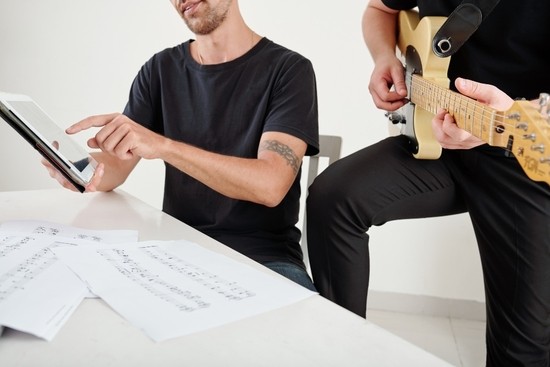It’s no secret that being in quarantine can get boring pretty fast, but there are wonderful benefits to having some alone time to develop other interests. Take, for example, the beautiful sound of music and how it makes every individual feel.. Here are some of the best ways to make better music:

1. Get to Know Your Gear
It’s one thing to pick up a violin and start plucking the strings or to begin tapping a beat on your drumset, but do you really know your instrument?
The piano is a fascinating piece not only in looks but it offers six functional features that include the keyboard, hammers, dampers, bridge, soundboard, and strings. There are actually some 12,000 individual parts to this magnificent instrument.
Professional musicians will tell you that getting familiar with your gear is important to developing your musical skills. Each instrument is extremely unique and has been made with special features that come with both capabilities and limitations.
The goal is to produce amazing sound from your musical instrument and to use the proper technique to achieve it, but every musician should also have a good understanding of their piano or guitar, for example, and how each component works together.
Even knowing the make and model of your instrument can enhance your musicianship.
2. Practice Makes Perfect
It’s no secret that spending extra time playing your musical instrument will make you a finer musician. You can also watch and listen to some of your favorite musicians playing your favorite instrument to observe their skill, passion, and technique. This can be quite inspiring to you and encourage you to keep going to refine your talent.
There are fine method books out there that can assist you in mastering your musical skill and while you may be searching for best music production tutorials for free online, there are also lots of academies that can provide more advanced knowledge.
In other words, every musician on the planet is not meant to go it alone. There are all kinds of music lessons at every level to choose from. Maybe you need some help in reading music or improve your chord progressions, for instance. You can brush up on those aspects and continue to practice, and practice some more.
It’s always fun to jam with your buddies, but during quarantine, you may not have this luxury for the time being. That’s alright because practicing solo in the privacy of your home allows you to be one with your musical instrument where you can perfect your technique and skills.
As the iconic trumpeter Louis Armstrong once said, “If I don’t practice for a day, I know it. If I don’t practice for two days, the critics know it. And if I don’t practice for three days, the public knows it.”
3. Good-Bye, Comfort Zone
As human beings, we are creatures of habit. We like routines, a sense of normalcy and to continue doing things the way we’ve always done them, right?
If there is one lesson that quarantine has been teaching all of us it’s that life can change on a dime. The point is to discover new ways and new interests to keep moving ahead.
The same can be said about your musical instrument. It’s time to challenge yourself and explore new ways to play. Maybe you could add another instrument to your woodwind obsession, for example.
Or maybe it’s your moment for learning a new track or covering a certain song.
Go for it, and leave your comfort zone! You will find plenty of resources online where you can choose from thousands of cool sheet music, tablatures, and chord charts.
Conclusion
Hey, no one ever said that lockdown during the pandemic would be easy, but thankfully, we have music to move us, get us off the couch, away from the high-tech devices and keep us going. Pick up that instrument, and take it to the next level as you improve your skills and create beautiful music. You’ve been sheltering in place and practicing your social distancing, and now is a good time to hone your skills. Playing a musical instrument is excellent for the brain because it gets the mind working on all cylinders from comprehension to memory to coordination and even mathematical reasoning.
